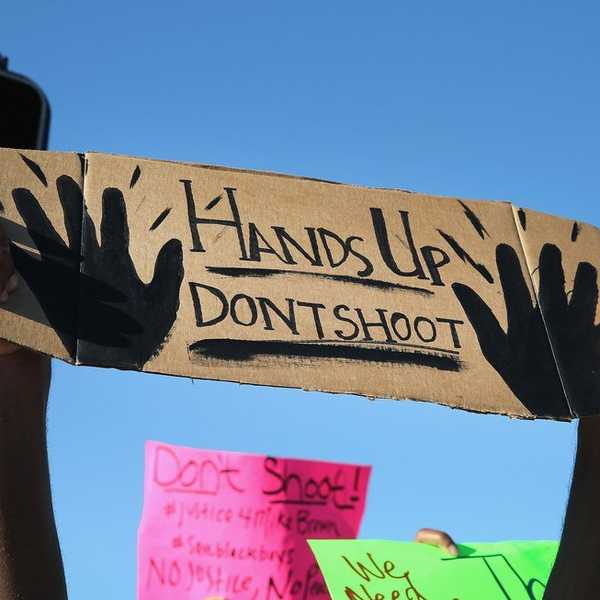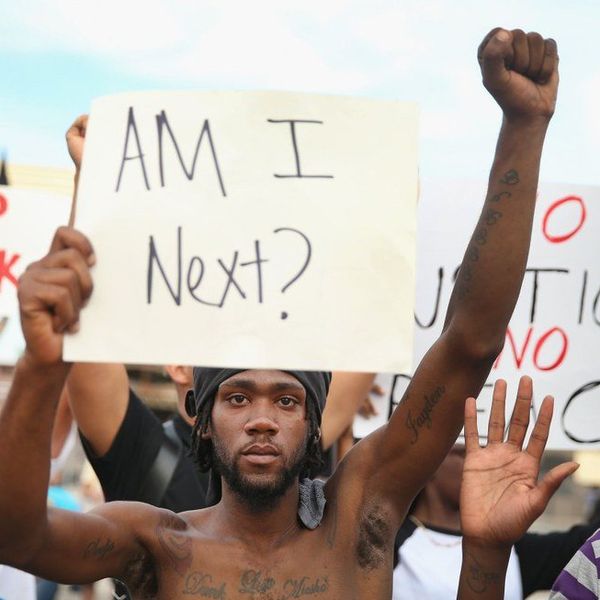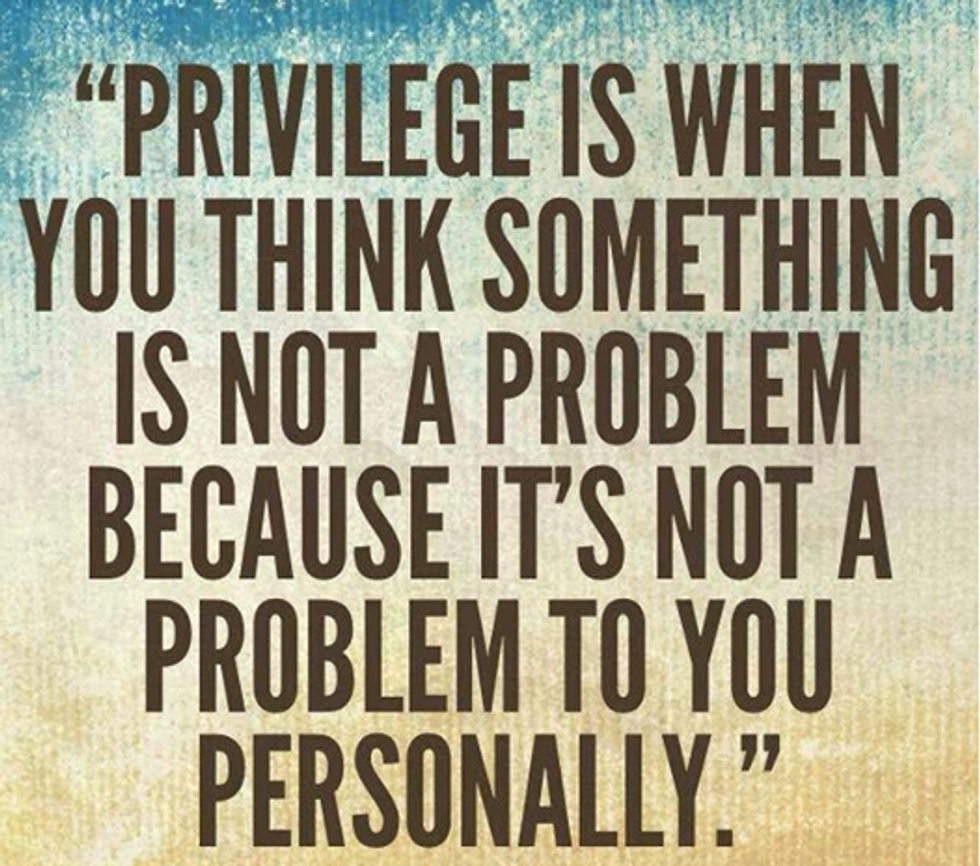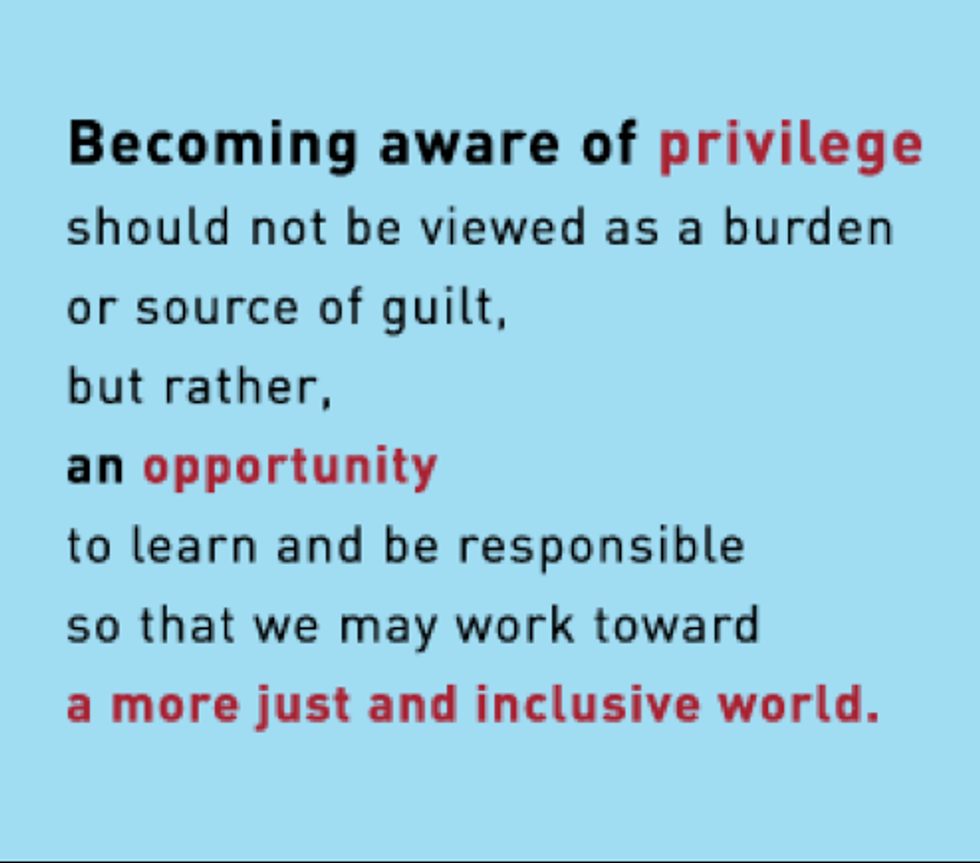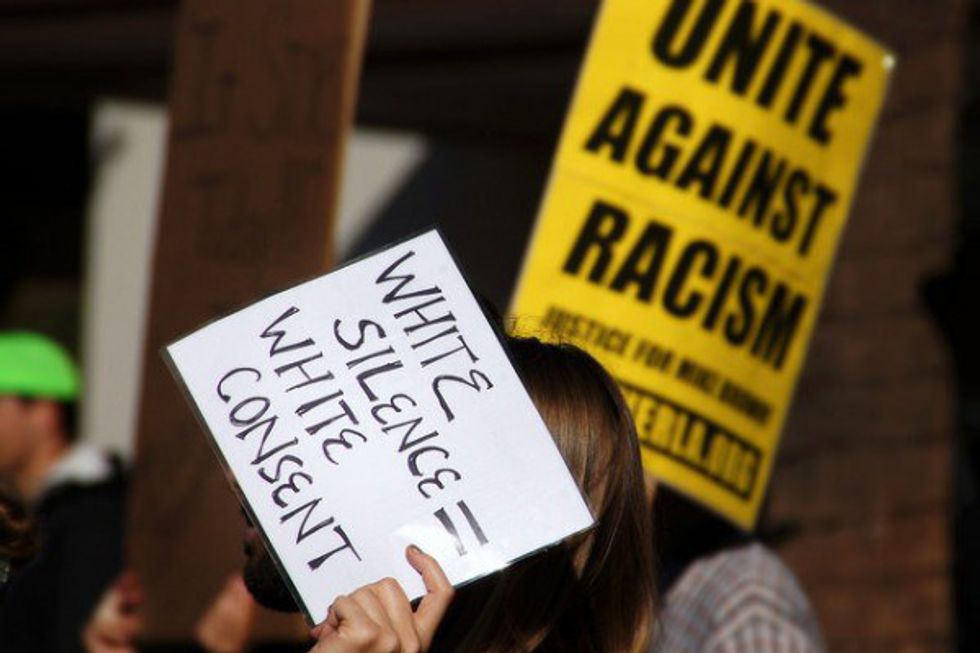In the midst of the controversy surrounding police brutality and racial prejudice, many Internet users have taken to sharing examples of positive law enforcement interactions to ease tensions and prove that hatred isn't a universal trait. These range from photos of Black Lives Matter protesters hugging police officers to documentations of peaceful encounters when a cop pulls someone over. There have even been a few reported instances of officers going out of their way to apologize for recent acts of violence to black strangers they encounter.
For many of us, when we see this sort of content pop up in our social media feeds, it makes us smile. We feel better about the world when we're shown that it isn't all bad, and we share the stories so others can experience a bit of positivity in their day as well.
But here's the problem with the attempts to spread these kinds of stories around. Even though this is done with the right intention, the shifting of the spotlight from the negative interactions to the positive ones takes the focus away from where it needs to be. It's a form of justification for not paying enough attention to the tragedies that take place every day, a way of ridding yourself of the guilt that you aren't doing anything to prevent what's occurring.
By saying, "Not every cop is like that," or, "Not every interaction with law enforcement ends negatively," makes the murders of black Americans by police seem like isolated incidents, and like tragic accidents that are just to be expected, when the fact of the matter is that an alarming and certainly not coincidental amount of black lives have been taken. It's making a declaration that as long as there is good, there cannot be bad or at least not bad that is worth addressing. Obviously, not every police officer is corrupt and racist, and not every black citizen who is stopped by law enforcement is compliant and innocent, but that is completely irrelevant and counterproductive to the movement against police brutality based on race. One innocent black life taken by police is worth seeking retribution.
Recently, a video of the actions of several local law enforcement officials came to the attention of many. On the surface, it shows a police officer pulling over a car with a woman and her child inside. The officer walks up to her driver side window and asks if she knows why she was pulled over, to which she answers him no. He then sites a numerically named law that is revealed to be fictional when he says that it states it is against the law "to drive on a hot day without an ice cream cone" while producing the ice cream. The woman is nearly brought to tears by the gesture, and everyone leaves with smiles on their faces.
I was not present for this interaction, I have not spoken to the driver or her child, nor have I heard any response from them about their feelings on the incident. I cannot claim to know what was going through her mind during the video or the emotions she was experiencing. I can make the assumption that she was nervous when pulled over, given her demeanor and her response to the officer's first question with, "No, I mean, no sir, I'm sorry." I can also infer that she was not expecting the ice cream due to her reaction when presented with it. But I can, however, say with certainty, that the police officers involved in this video are completely blind to the world of white privilege in which they live.
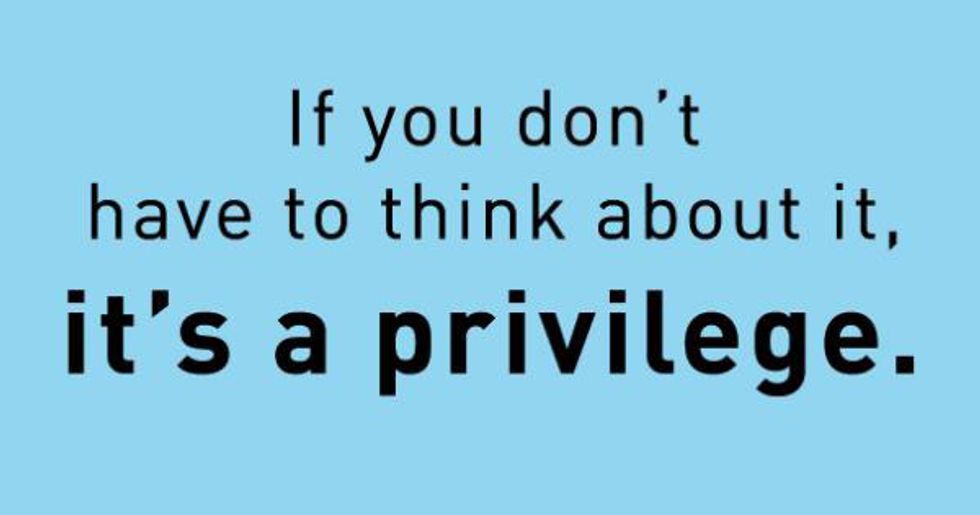
Like everyone who participates in or spreads around the examples of law enforcement kindness, their intentions were pure of heart, maybe even more pure than most. They took the time out of their day to try and brighten someone else's in a time where hope is a necessity for quality of life. In addition, they directed their act of kindness to a member of a community currently living in fear of the police, perhaps because they felt that that was where the good nature was needed the most. Contrary to their intentions, the act was carried out in the most insensitive and ignorant way possible.
They failed to take into account the current affairs of the world we live in. They failed to step into the shoes of black citizens in this country and imagine just how terrifying it would be to be pulled over by the police in the wake of recent events, especially if the person was innocent. They failed to acknowledge that this woman probably feared for her child's life when just weeks ago, a man was shot dead while his girlfriend's four-year-old daughter watched from the backseat, forever imprinted with that memory. They failed to picture the terror that a black woman would feel when a white male officer loomed over her with his gun at her eye level, knowing that were something to happen, it would be his word against hers. They failed to realize just how much fear and power that they as white law enforcement officials have over a community fighting for their lives against prejudices. And they continue to fail in awareness of the suffering of the black community when they tell reporters in interviews that they watch the video over and over again and feel good about themselves.
These failures were not directly their fault. As said before, the intention was exactly what it should have been, but the knowledge of the world outside their own was lacking entirely. This is white privilege, not knowing what it's like to live in fear of violence because of race. White privilege creates blinders to where all we see is the world in front of our own eyes, and not those next to us whose vision is filled with a whole lot more fear, a different kind, based on the color of their skin.
This is what happens when the only news we're exposed to is events like this. We hear about horrific occurrences but encounter far more evidence of the "positives" to the point where we assume the negatives must be exaggerated or even instigated. And when the negatives are finally brought to light, we comb through them for justification that makes us feel better and rids us of guilt. No one picks apart the positives looking for things that the officers might have done incorrectly or inappropriately. The intention is all that's seen as important, not the larger issue of why people are trying to prove the goodness of white police.
If law enforcement officials want to give to the community or black citizens, then they must be situationally aware when doing so. They want to hand out ice cream to give hope to someone in need? Stand outside a grocery store or a mall and present it to them as they walk in, in a public area where black people won't be paralyzed with fear that something might happen in private. Or set up a stand and a sign on the side of the road and let people stop by of their own accord to get a treat. Be aware that the circumstances have a large effect on the atmosphere of the interaction.
Or even better, do what is needed far more than positivity and take a stand. Encourage fellow officers and white people to unite with the minorities that are suffering and refuse to allow it any longer. Fight for justice, use the color of your skin, your badge and your privilege to help those that are being silenced again and again and again. Make that what people share on the Internet, make that why you're proud of yourself and make that what shatters the illusions created by white privilege. To white people, to everyone, if you want to prove that the world isn't all bad, then do it by taking a stand.

